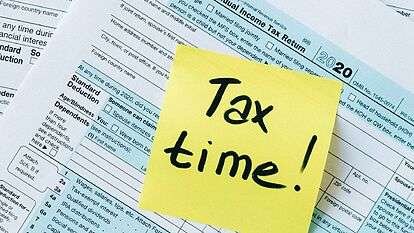

Income Tax Audit in India
Description: Discover the importance of income tax audit in India and streamline the process with this SEO-optimized guide. Learn about the essentials of income tax audit, criteria for applicability, filing deadlines, documentation requirements, and expert tips to ensure a smooth and hassle-free audit experience.
Introduction:
Income tax audit is a critical aspect of tax compliance in India. It helps ensure accuracy, transparency, and adherence to the Income Tax Act. This comprehensive guide aims to simplify the income tax audit process, providing insights into its importance, criteria for applicability, filing deadlines, documentation requirements, and expert tips to facilitate a seamless and hassle-free audit experience.
1. Understanding Income Tax Audit:
Income tax audit is a thorough examination of an individual’s or business’s financial records, income statements, accounting books, and other relevant documents to verify the accuracy and compliance of tax filings. It is conducted by a qualified chartered accountant or tax professional.
2. Criteria for Applicability of Income Tax Audit:
a) Business Turnover: Income tax audit is mandatory for businesses whose total turnover exceeds the specified threshold, currently set at Rs. 1 crore for businesses and Rs. 50 lakhs for professionals.
b) Professionals: Professionals such as doctors, lawyers, architects, etc., are subject to income tax audit if their gross receipts exceed Rs. 50 lakhs.
c) Presumptive Taxation: Businesses opting for presumptive taxation under Section 44AD, 44ADA, or 44AE are also required to undergo income tax audit.
3. Filing Deadlines and Documentation Requirements:
a) Audit Report: The tax audit report, Form 3CD, must be filed electronically on the Income Tax Department’s official portal (www.incometaxindiaefiling.gov.in) by the specified due date, which is generally September 30th of the assessment year.
b) Documentation: Gather all relevant financial statements, books of accounts, bank statements, invoices, and supporting documents required for the audit.
4. Expert Tips for a Smooth Income Tax Audit:
a) Prepare in Advance: Start preparing for the income tax audit well in advance to ensure all necessary documentation is in order and accurate.
b) Maintain Proper Books of Accounts: Ensure that your books of accounts are accurate, up-to-date, and comply with accounting standards. This will facilitate a smooth and efficient audit process.
c) Seek Professional Assistance: Engage a qualified chartered accountant or tax professional who specializes in income tax audits. Their expertise will help you navigate the complexities of the audit process and ensure compliance with the relevant tax laws and regulations.
d) Regular Compliance: Maintain regular compliance with tax laws throughout the year. This includes timely filing of tax returns, payment of taxes, and adherence to other tax-related obligations.
Conclusion:
Income tax audit is a vital part of tax compliance in India, ensuring accuracy, transparency, and adherence to the Income Tax Act. By understanding the criteria for applicability, filing deadlines, documentation requirements, and following expert tips, individuals and businesses can navigate the income tax audit process with ease. Prepare in advance, maintain proper books of accounts, seek professional assistance, and ensure regular compliance to ensure a seamless and hassle-free income tax audit experience. Embracing income tax audit not only facilitates compliance but also strengthens financial integrity and fosters trust in the taxation system.

Nagarjuna & co Tax is your trusted partner for business registrations and licenses. Our experts simplify the process, ensuring accuracy and peace of mind.
Quick LInks
Contact
- +91 8885551121
- ummadi.nag244@gmail.com
- Pragathi Nagar Rd, HMT Hills, Kukatpally, Hyderabad, Telangana 500072
Copyright © 2024 Nagarjuna & Co Tax Consulatant. All rights reserved.